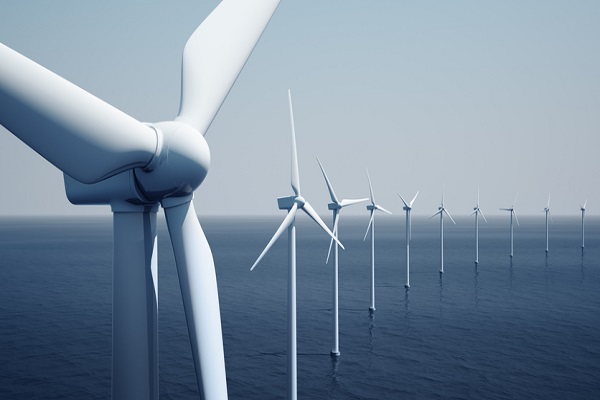ii view: dividend stock SSE stays on track
21st July 2022 15:53
by Keith Bowman from interactive investor
This FTSE 100 company is investing heavily in green energy and offers an attractive dividend yield. We assess prospects.

First-quarter update to 30 June
ii round-up:
Renewable energy provider SSE (LSE:SSE) today flagged ongoing progress across its various generation build programmes as it reaffirmed expectations for full-year adjusted earnings of at least 120p per share, in line with City forecasts.
First power from its Seagreen offshore wind farm is expected by the end of this month, and construction on its Viking onshore wind farm and Dogger Bank A, B and C offshore wind farms is progressing well.
- Invest with ii: Top UK Shares | Share Tips & Ideas | Sustainable Investing Ideas
SSE shares drifted around 2% lower in UK trading having come into this latest update up around 7% year-to-date. Shares for National Grid (LSE:NG.) are little changed during 2022, while Utility Warehouse brand owner Telecom Plus (LSE:TEP) is up by more than a third. The FTSE All Share is down by almost 5% year-to-date.
- 12 stocks for dividend investors hunting for high yields
- Dividend investing: three tips for a comfortable retirement income
- Jeff Prestridge: these dividend generators are back in vogue
Output of electricity from SSE’s renewable sources, in which it has an ownership interest across the UK and Ireland, came in at 93 Gigawatt hours or around 5% ahead of plan during the quarter, mainly due to weather conditions.
SSE also highlighted the contribution its more traditional gas fired, or flexible thermal generator operations, continued to play, which can be utilised when renewable sources such as wind are experiencing poor conditions. Gas fired output was overall slightly up year-over-year.
The FTSE 100 company also flagged progress for the disposal of its 25% minority stake in Scottish and Southern Electricity Networks Transmission, with a formal process now underway as it targets an agreed sale by the end of the calendar year.
First-half results are scheduled for 16 November.
ii view:
Scottish & Southern Energy, now SSE, was formed via the merger of Southern Electric and Scottish Hydro Electric. Headquartered in Perth, Scotland, it currently employs around 10,000 people. In November, SSE outlined an additional investment of £12.5 billion in its renewable energy assets up until 2026, the funding of which requires a scheduled cutting or rebasing of the dividend. A debasement to a total of 60p per share will be made from 2023/2024 followed by increases of at least 5% in 2024/25 and 2025/26. Its last declared full-year payment to the end of March 2022 totalled 85.7p per share.
For investors, renewable energy production such as wind power is vulnerable to the weather, making output unpredictable. The company is subject to regulatory reviews, a change of government or could see a windfall tax applied to profits, as with oil majors BP (LSE:BP.) and Shell (LSE:SHEL), while a scheduled rebasing of the dividend now awaits.
More favourably, SSE remains the UK’s biggest renewable energy generator, with plans to invest and expand. The diversity of its operations is helping to balance out the volatility of its renewable output, while the shares sit on a forward dividend yield of around 5%. On balance, and while some caution looks sensible given political change and potential for a possible windfall tax, climate change credentials give grounds for longer-term optimism.
Positives
- Expanding renewable clean energy
- Attractive dividend payment (not guaranteed)
Negatives
- Subject to regulatory rulings
- Growing renewable energy competition
The average rating of stock market analysts:
Buy
These articles are provided for information purposes only. Occasionally, an opinion about whether to buy or sell a specific investment may be provided by third parties. The content is not intended to be a personal recommendation to buy or sell any financial instrument or product, or to adopt any investment strategy as it is not provided based on an assessment of your investing knowledge and experience, your financial situation or your investment objectives. The value of your investments, and the income derived from them, may go down as well as up. You may not get back all the money that you invest. The investments referred to in this article may not be suitable for all investors, and if in doubt, an investor should seek advice from a qualified investment adviser.
Full performance can be found on the company or index summary page on the interactive investor website. Simply click on the company's or index name highlighted in the article.